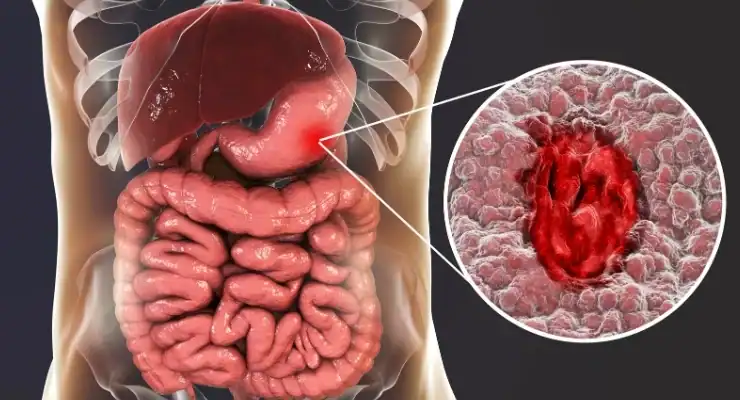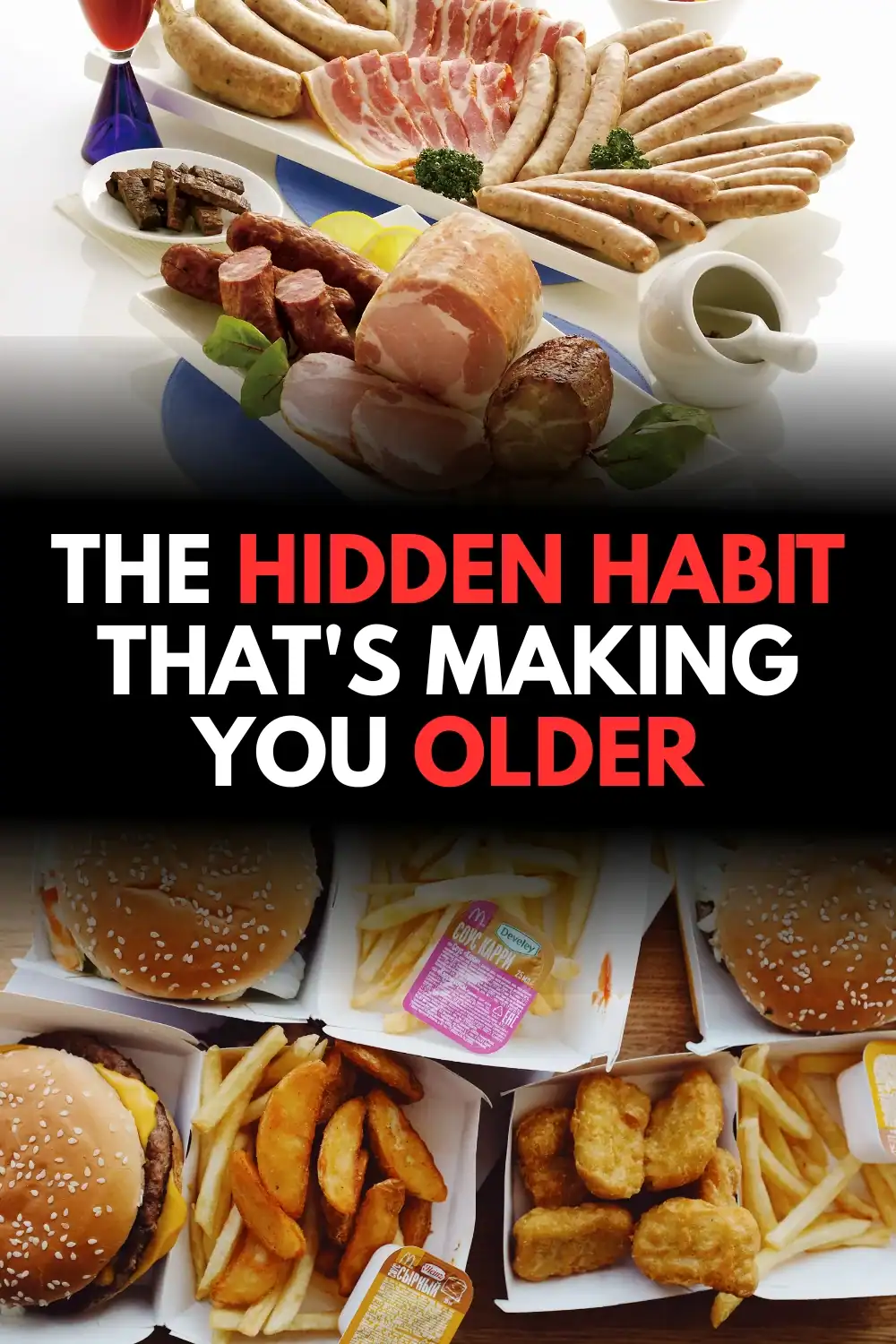The common eating habit you practice, accelerates your aging process beyond your actual appearance. Scientific studies indicate that consuming ultra-processed foods leads to a silent increase in biological age that could result in two to three years of additional age.
You eat that snack without realizing it will add months to your body’s aging process while you remain healthy. The scientific community validates what numerous people have always believed about unequal caloric effects.
Scientists unveiled crucial findings in 2024 research which demonstrates that excessive ultra-processed food consumption leads to accelerated biological aging. They used data from 16,000 participants to establish that ultra-processed food consumption leads to faster biological aging.
The more ultra-processed foods you consume the older your cellular activity becomes even when you look and feel youthful. This research introduces a fundamental question about your regular diet choices. Your normal eating habits throughout the day could unintentionally age you down through the passing years by the time you take each bite.
This article explores ultra-processed foods in detail including their identification methods and biological age effects according to recent research findings.
Let’s begin.
What Are Ultra-Processed Foods, Really?
The term ultra-processed foods exists in science terminology although you probably consumed such a product earlier today. Ultra-processed foods consist of items which manufacturers produce mainly or solely from substances that home cooks would never use in their kitchen.
Ultra-processed foods contain artificial flavors alongside preservatives, colorings as well as emulsifiers, stabilizers, and numerous other chemical additives. The production methods used in manufacturing these products result in minimal whole food content while undergoing extensive industrial transformations.
For better understanding, here are several well-known examples:
- Packaged snack items including crackers, chips together with cookies, granola bars, and more
- The beverage sector consists of sugary drinks which include sodas and fruit drinks as well as energy beverages
- Processed meats include hot dogs along with sausages and deli slices among others
- Instant noodles and boxed mac and cheese
- Frozen ready-to-eat meals and microwave dinners
- Sweetened breakfast cereals
- The product lineup includes flavored yogurts alongside dairy desserts.

These food products contain high levels of sugar together with unhealthy fats, sodium, and manufacturers create them to be exceptionally appealing. These foods provide minimal fiber content along with few vitamins and antioxidants while being designed to taste delicious.
A Shocking Stat Worth Knowing
Ultra-processed foods comprise more than 60% of typical Western diets according to BMJ Open research by Monteiro et al. (2018). The percentage has probably risen since the original assessment. A review of research indicates that adults and children in the United States consume ultra-processed foods that amount to nearly 70% of their total calorie intake.
The majority of people consume ultra-processed foods as their main dietary staples rather than occasional treats. The genuine issue emerges at this point. Your body accelerates its aging process internally when ultra-processed foods dominate your diet beyond what should be normal.
The following section explores a 2024 study which explains how silent aging operates along with its current effects on your body.
The Study That Turned Heads
The research team published a groundbreaking 2024 study in Age & Ageing which used U.S. NHANES surveys from 2003-2010 to analyze dietary information and health data from 16,055 adults.
Their goal? The researchers applied PhenoAge algorithm to biological aging assessment while studying the relationship between ultra-processed food consumption.
What They Found
Every 10% increase in UPFs leads to biological aging that results in 0.21-year (approximately 2.5 months) difference from actual chronological age. The highest UPF consumption group (68–100% of daily calories) exhibited biological aging at approximately 0.86 years more than the lowest consumption group (≤39%).
Chronological vs. Biological Age
The chronological age of a person is their age according to their birth date but biological age refers to how a person’s cells, organs and systems are aging internally by using markers like inflammation, metabolism and immune health. Your body’s aging rate in the sense of disease risk or physical decline. People who consumed more UPFs were aging both in years and at the cellular level.
Why This Study Matters
Research using 16,000 participants and contemporary biomarkers delivers an exceptionally detailed understanding of UPFs and aging development in current science.
Diet quality adjustments did not affect the significant relationship between UPFs and aging.
Multiple media outlets have reported on this research because it demonstrates how typical foods contribute to accelerating our biological age (Herald Sun, Economic Times).
How Ultra-Processed Foods Age Your Body
The visible indicators we associate with aging include wrinkles and gray hair as well as decreased movement speed. The most critical damage occurs at a cellular level before any noticeable signs appear in the mirror.
The slow aging process of your body might be accelerated by ultra-processed foods (UPFs) without you realizing it.
They Trigger Chronic Inflammation
Food products that come from industrial processes contain refined sugars and seed oils alongside additives which the human body fails to identify as natural food substances. These ingredients tend to create long-term chronic inflammation which damages organs along with the immune system and brain.

Scientists call the aging process ”inflammaging” because inflammation serves as its primary driver according to research sources.
They Disrupt Your Gut Microbiome
Your gut contains trillions of microbes that both manage digestion and control mood regulation. Most UPFs fail to deliver essential fiber and nutrients to gut bacteria while simultaneously serving as food sources for dangerous bacterial strains.
A mismatch between gut bacteria known as gut dysbiosis leads to accelerated aging along with metabolic disorders and immune system dysfunction.
They Alter Metabolic and Hormonal Balance
When you consume excessive UPFs it becomes harder for your body to control insulin levels while maintaining stable blood sugar levels. The prolonged consumption of these foods can cause metabolic syndrome that substantially increases your chances of developing age-related diseases including type 2 diabetes, heart disease, and stroke.
The scientific journal Nutrients published a 2023 review that showed oxidative stress, hormonal imbalances and telomere shortening occur in diets that contain high levels of UPFs.
They Fuel Oxidative Stress
Multiple processed food products receive industrial preparation which generates advanced glycation end-products (AGEs) that harm DNA along with proteins and cells. Oxidative stress represents the primary mechanism that causes cells to age at an accelerated rate.

The accumulation of cellular damage throughout time leads to quicker aging of tissues while simultaneously raising disease susceptibility.
How Much Is Too Much?
People understand how ultra-processed foods (UPFs) accelerate aging but they need to know the specific amounts that cause harm.
The 2024 research demonstrates that a 10% increase in UPF-calorie intake equivalent to one daily serving would accelerate biological aging by 2.5 months. The aging process advances progressively through time at a pace which exceeds what would normally occur.
What Does 10% Look Like?
- Daily intake of 200 calories from UPFs includes eating small chips or drinking sugary soda.
- Western diets typically contain UPFs that represent more than 60% of daily calorie consumption so the aging effects could accumulate rapidly (source).
The “Minutes Lost” Concept
A 2021 Nature Food research published data showing that:
- Consuming hot dogs results in losing 36 minutes of healthy life.
- A chocolate bar might remove 22 minutes.
- Drinking sugary soda would result in the loss of 20 minutes.
These models lack precise predictions of death or aging time but demonstrate how UPFs represent more than empty calories because they impact biological processes.
Moderation Over Perfection
The need to completely eliminate all packaged snacks exists forever. Not at all.
The scientific consensus supports eating in moderation while maintaining equilibrium in life. Swapping out a few UPF portions with whole fresh foods will decrease your biological aging process and create better health outcomes.
Simple Swaps to Reduce UPFs
- Try substituting soda with sparkling water or herbal teas.
- Choose nuts seeds along with fresh vegetables instead of consuming chips.
- Select homemade food instead of purchasing frozen ready-to-eat meals.
- Choose your snacks from fresh fruit, yogurt or whole-grain crackers.

So, Should You Panic?
The information does not require absolute perfection. It’s about awareness.
The transition to ultra-processed food avoidance does not require you to eliminate all these foods at once nor does it need to transform your entire lifestyle. Your understanding of food-body interactions should lead you to implement small changes which will build up over time.
What This Means for You
The power you exercise with your fork exceeds your current awareness. The decisions you make about food determine the rate at which your biological processes progress.
The choices you make now will determine your physical state when you reach 60, 70 and older years.
When you grab a snack remember to ask yourself this question: “What am I providing for the future version of myself?”
Your body stores information which remains hidden from your awareness.